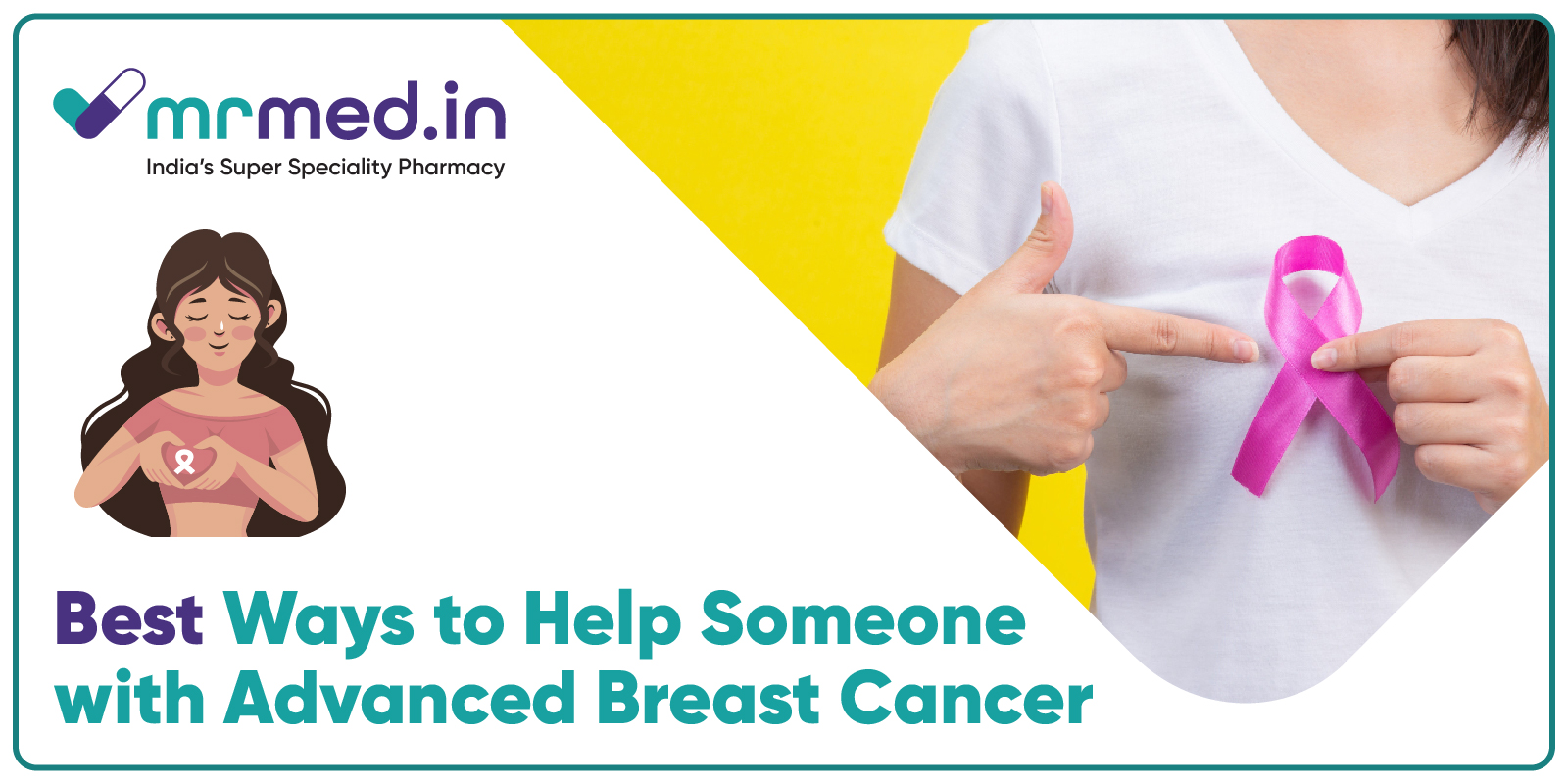
When a loved one is diagnosed with advanced breast cancer, life often changes overnight. Along with medical treatments and hospital visits, families suddenly face questions about emotional support, daily care, and how to simply í░be thereí▒ in the right way. For many, the journey can feel overwhelming, but with the right knowledge and approach, caregivers can make a real difference.
Supporting someone through breast cancer is not just about helping with medicines and appointments, it is about offering comfort, dignity, and strength at every step.
What Does Advanced Breast Cancer Really Mean?
Advanced breast cancer, also called metastatic breast cancer, occurs when cancer spreads beyond the breast to other parts of the body such as bones, liver, lungs, or brain. While treatments aim to control the disease and improve quality of life, the emotional and physical impact is significant. Patients often deal with pain, fatigue, and uncertainty about the future, which makes family and caregiver support essential.
How Can You Offer Emotional Support?
- Listen without judgment: Sometimes, your loved one may just want to talk, vent, or share fears.
- Be present: Even quiet companionship can be comforting.
- Encourage positivity without forcing it: Acknowledge their feelings, whether hopeful or fearful.
- Help reduce isolation: Staying socially connected through visits, calls, or group activities helps prevent loneliness.
Emotional support creates a foundation of trust that patients rely on when navigating treatment.
What Practical Support Really Helps Day-to-Day?
Cancer treatment often disrupts normal routines. Offering practical help can ease daily struggles:
- Medical appointments: Accompanying them to hospital visits can ease stress.
- Household chores: Cooking, cleaning, or even small errands make a big difference.
- Medication management: Helping them track doses and schedules ensures better treatment adherence.
- Financial planning: Advanced treatment may bring unexpected costs. Assisting with paperwork, insurance, or financial aid programs in India can be useful.
Small but consistent acts of help reduce fatigue and give patients more energy to focus on their well-being.
How Important Is Understanding the Treatment Plan?
Every patientí»s treatment journey is unique. Learning about the therapies your loved one is receiving helps you support them better. For example, some patients may be prescribed targeted therapies like EverGraf 0.5mg, which contains Everolimus and is used in certain cancer management plans. These treatments may cause side effects such as mouth ulcers, fatigue, or lowered immunity. Being aware of possible reactions allows caregivers to respond quickly and coordinate with doctors when needed.
How Do You Manage Side Effects Together?
Side effects from treatments can be draining, both physically and mentally. Supporting your loved one involves recognizing and managing these:

By helping them cope with side effects, you provide comfort and improve their quality of life.
Can Nutrition and Lifestyle Make a Difference?
Nutrition plays a key role in maintaining strength during advanced breast cancer care. Patients may benefit from:
- Protein-rich foods for muscle health.
- Fruits and vegetables for vitamins and antioxidants.
- Whole grains for steady energy.
- Hydration to prevent fatigue and maintain organ health.
Avoiding alcohol, processed foods, and excess sugar is equally important. Light exercises such as walking or yoga might, with the doctorí»s consent, alleviate stress and elevate the mood.
Why Is Communication with Healthcare Teams Essential?
Open communication between caregivers, patients, and doctors ensures clarity about treatment goals, possible side effects, and future planning. Caregivers can prepare questions before appointments, track progress, and share concerns openly. In India, where follow-up visits may involve travel, telemedicine consultations can also help maintain regular contact with specialists.
How Do You Balance Hope and Realism?
Caregiving often involves finding a balance between staying hopeful and preparing for challenges. Patients may feel uplifted when families maintain optimism, but also reassured when caregivers acknowledge the reality of the situation. Accepting both hope and uncertainty allows patients to live meaningfully in the present.
What About Caregiver Self-Care?
Supporting a loved one can be emotionally exhausting. Practising self-care helps you remain strong:
- Take breaks when needed.
- Share responsibilities with other family members.
- Connect with caregiver support groups, many of which are available in Indian cities and online.
- Seek counselling if feelings of anxiety or helplessness become overwhelming.
Looking after yourself ensures that you can provide sustainable support.
Why Does Palliative Care Matter?
Palliative care is not only about end-of-life support, it is about improving comfort at any stage of advanced breast cancer. It includes pain relief, psychological counselling, and social support. In India, palliative care services are growing, though still limited in rural areas. Seeking such support early can make a significant difference in patient comfort.
Conclusion
Supporting a loved one with advanced breast cancer is both challenging and meaningful. It requires emotional strength, practical assistance, and awareness of medical treatments. While doctors provide therapies, caregivers offer the stability and compassion that make the journey bearable. By being informed, patient, and empathetic, you can help your loved one live with dignity and comfort.












